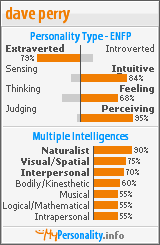Charnwood Water, Loughborough
Whatever eye to eye communication was happening between these two as the shutter clicked is a mystery. What would Beatrix Potter have read into this moment? It looks for all the world as though the swans are in conversation. Would she have had them grumping about the snow, complaining about the ducks, or delighting in some shared insight? Her imagination was fired by just such moments of seeing.
We know that Jemima Puddle-Duck's character was based on a duck that lived at Hill Top farm. Published in 1908, Jemima's sinister encounter with the foxy-whiskered gentleman illustrates so well how Beatrix Potter's animal characters are cyphers of our experiences. We see ourselves in the stories, which is part and parcel of the delight of discovering them in childhood or reading them at bedtime to our own kids. It is quite a salutary lesson to realise how quickly one transitions from naughty Peter Rabbit to the angry Mr. McGregor chasing him with a rake. The story becomes a safe space in which to explore some of the hard lessons of life concerning risks, consequences and responsibility.
We know that finding a safe non-judgmental space in which difficult issues can be unpacked is the essence of good therapeutic or relationship counselling. Contrast this to the very public anger which is being ignited across the country by the dispute at our local Total Oil Refinery at North Killingholme. I have been told that the BNP are taking an active interest. A quite legitimate concern over the security and rights of the local workforce in a global marketplace could so easily degenerate and be manipulated into something far more sinister and xenophobic. Writing in the Guardian, Max Hastings paints a bleak picture of a harder, nastier Britain which may start to emerge as the recession bites. It is so vitally important that we retain a generous and inclusive spirit.
The ever-present danger in a liberal democracy under pressure is that the voices of extremism whip up popular support through a stereotyping, de-humanising blame game. As history shows us it is imperative that we stand up to all forms of hatred. The Holocaust Memorial Day Trust puts it like this: Acts of hatred always involve making a choice. We choose to attack, to abuse, to exclude, to stand back and do nothing – or we choose to resist, to respect, to protect.
If we fail to choose to 'resist, protect and respect ' we can find ourselves sliding to the point at which the normative interpretation of the two swans picture is one in which the swans are saying: "what should we do with these not-swans?" And that is far more chilling than the snow.








The photograph took away my breath as I stared at it for a few moments and moved into my quiet space. I was captivated within the first two paragraphs, and held there, as a willing hostage, within the words.
ReplyDeleteI was just beginning to visualize the amazing connection between photo and word, when my eyes crossed over the third paragraph. It was like a shot that jerked me awake, and my moment was gone.
I get your point. It was not lost on me, though I would rather not have gone there. A point that does nothing but distract from the depth of the moment; from the gift of a spiritual awakening in the 'snow'.
Hi Enchanted; welcome and thanks for your thoughtful comment.I take your point about the third paragraph moving into a very different space, and I am sorry you lost that creative moment of wonderment. Yet that move into unpleasant territory was exactly my intention in this instance because these are issues about which I feel passionately, and they do jar and intrude. I regret that it didn't work for you and hope that you may yet rest in another moment with the image in a way that is beneficial.
ReplyDelete